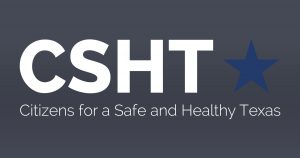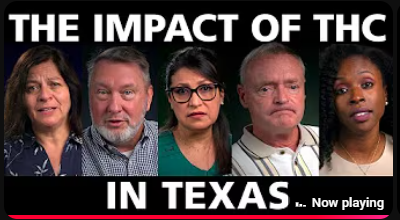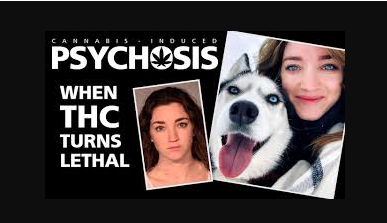Citizens for a Safe and Healthy Texas
Uniting and educating communities on the impacts of marijuana (THC).
After years of watching our communities struggle and our families bear the consequences of the dangerous hemp loophole, the federal government has finally stepped in to close the gap in the 2018 Farm Bill—one that allowed one of the largest drug-trafficking schemes in Texas history to grow unchecked.
This moment didn’t happen by chance. It happened because countless Texans—parents, medical professionals, lawmakers, law enforcement officers, and everyday people who have suffered or witnessed suffering—stood together and refused to stay silent. Our Lieutenant Governor, the Senate, the House, and every major Texas medical organization showed incredible leadership. And families who have been directly harmed found the courage to speak out, again and again.
Despite this groundswell of support, Governor Abbott chose to hear only the voices of the hemp industry and vetoed SB3, a ban on retail hemp THC, just 20 minutes before it was set to become law. That decision was heartbreaking for so many of us who had poured our time, energy, and stories into protecting our communities.
But today, there is hope. The federal government has corrected that mistake, recognizing what Texans have been saying all along: the human cost is too high. Within the next year, only hemp products containing 0.4 mg or less of Delta-9-THC will be allowed. This means the most dangerous products—the ones that have harmed our kids, our loved ones, and our neighborhoods—will finally be taken off the shelves. Reputable hemp businesses will still be able to operate, but without selling products that fuel addiction, psychosis, and other devastating mental and physical health issues, such as CHS, cannabinoid hyperemesis syndrome.
From the bottom of my heart, thank you. Thank you to every organization, every elected official, every advocate, and every family who fought for this. Taking on Big Cannabis, with its deep pockets and powerful influence, is not easy. But you showed up anyway. And your courage mattered.
This is a victory—an important one. But it is not the end of the fight. We still have work to do to protect the health and safety of Texans. And if this past year has shown anything, it’s that when Texans stand together, we are unstoppable.
When Texans win, America wins.
Sincerely,
Aubree Adams
Director of Citizens for a Safe and Healthy Texas
11/16/202
5
Know the facts
🚨 Misinformation from the THC Industry
We urge legislators to see past the industry’s marketing spin.
“No one has died from THC”
– A lie by omission. This narrative is just as misleading as Big Tobacco’s assertion that “no one dies from nicotine”. Here’s the truth: marijuana-related deaths are not effectively systematically tracked. People often die from THC-related violent and neglect incidents, drug overdoses, suicides, CHS, ingestion of edibles, road fatalities, heart attacks, and strokes.
Texas children who died from abuse and neglect
- The Texas Department of Family and Protective Services confirms that marijuana (THC) is the most common drug used by perpetrators in child abuse and neglect deaths. (2023 DFPS Fatality Report, P. 21)
Drug overdose deaths
Suicides: Cannabis use was associated with a higher rate of suicidal ideation and attempts in various populations, including bipolar and major depressive disorder patients, military veterans, and the general population. Evidence for a causal relationship was mentioned in one study for suicidal ideation. Additionally, some studies showed that heavy and long-term cannabis use was associated with worse suicidal outcomes.
Acts of Violence: Here is a list of violent incidents and mass shootings associated with cannabis (THC)-induced psychosis.
Cannabinoid Hyperemesis Syndrome can lead to dehydration and electrolyte imbalance, leading to fatal seizures and organ failure.
Ingestion of edibles can cause severe respiratory depression or cardiac arrest.
- Tanner Clements died from THC after consuming half of a CBD edible belonging to his mother.
- East Texas women charged after toddler overdoses on THC.
- A Texas man who allegedly gave his daughter THC chocolate, sending her to the hospital.
Road Fatalities: The combined effect of legalization and retail sales was a 5.8% increase in injury crash rates and a 4.1% increase in fatal crash rates
Heart Attacks and Strokes: The Journal of the American Heart Association found that ANY use of marijuana was linked to a high risk of heart attack (25% increase) and stroke (42% increase)
“Marijuana is safer than alcohol.”
A single shot of alcohol does not cause psychosis like a hit of THC can. Also, alcohol is a water-soluble drug, so people experiencing harmful effects usually recover within a few hours; however, THC is a fat-soluble drug. The detrimental effects, like psychosis and cannabinoid hyperemesis syndrome, can be long-lasting.
30% of THC users become addicted (Cannabis Use Disorder)
10% of alcohol users become addicted (Alcohol Use Disorder)
“Using Marijuana is about freedom,”
There is no freedom when an industry gets a free pass to deceive. Freedom is compromised when companies intentionally withhold or distort information that affects informed consent (Engle v. Liggett Group). Moreover, using marijuana can lead to serious issues that cause suffering, such as addiction, psychosis, and physical sickness. THC is the primary environmental factor that can lead to schizophrenia, a chronic psychiatric disorder that is associated with crime, homelessness, and reduced life span.
“THC is medicine.”
The hemp industry must stop making false medical claims until its products receive approval from the FDA. Making unsubstantiated medical claims is considered a deceptive trade practice under Chapter 17 of the Texas Business and Commerce Code, specifically the Texas Deceptive Trade Practices–Consumer Protection Act (DTPA). Claims such as “this cures anxiety” or “treats PTSD” may lead to accusations of unauthorized practice of medicine, which is a violation of the Texas Occupations Code Chapter 151. Additionally, products that make medical claims without FDA approval are classified as misbranded drugs under the Federal Food, Drug, and Cosmetic Act. The THC industry does not adhere to these regulations nationwide.
Don’t let Texas families fall prey to the marijuana industry!
Addiction (Substance Use Disorder) is a pediatric disease. 9 out of 10 people who develop this disease started using drugs under the age of 18. We need to focus on drug prevention policies, not drug promotion policies, like legalization.
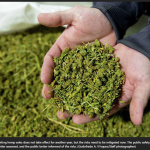
Until hemp ban goes into effect, Texas can do more to educate on impacts of THC
The intent of the 2018
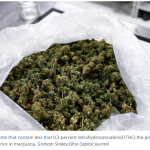
To Honor Charlie Kirk, Texas Leaders should Heed His Warning On Weed
If Republicans truly want to honor Charlie Kirk, they will help a generation of young Americans by standing up, as Kirk did, to the THC industry preying on them. Last year, the conservative activist exposed “The Four Big Lies of the Marijuana Industry” on his show and concluded that contrary to the industry’s promises, legalization has made our communities more dangerous, increased youth use, strengthened cartels and opened a gateway to a larger drug culture. He also demolished the rationale for President Joe Biden’s proposal to reclassify marijuana as a less-dangerous drug, a proposal that appears to tempt the Trump administration as well.
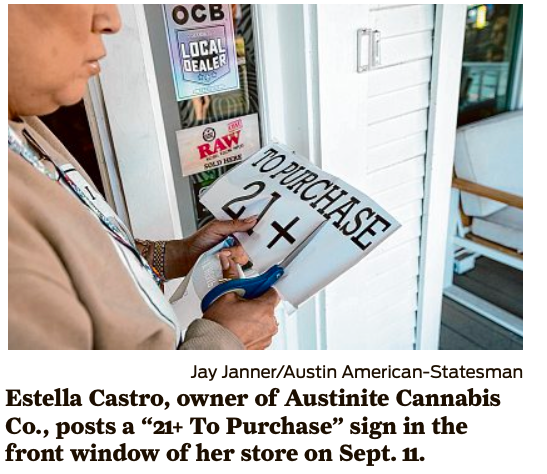
Abbott’s ‘child safety’ order hides a Trojan horse for THC
They’re pushing marijuana disguised as “hemp,” hazardous intoxicants as “wellness,” and brightly packaged gummies as “not for kids.” Under the banner of “child protections,” they are quietly legitimizing dangerous products for profit at the expense of Texas families.
Matt Rossheim is a public health professor, substance use prevention researcher, and parent in Fort Worth.
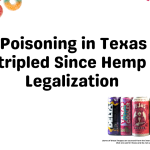
THC Poisonings in Texas Have Tripled Since Hemp Legalization
Since Texas legalized hemp in

Delta-8 in Texas remains classified as “illegal” after judge denies request from hemp firm
Another hearing on the matter

Texas HB-2593: Smoke, Mirrors, and Far Too Many Unintended Consequences
Reading between the lines, Texas

Cannabis Almost as Addictive as Opioids Among Teens, Study Finds
Teenagers’ addiction rates for cannabis
